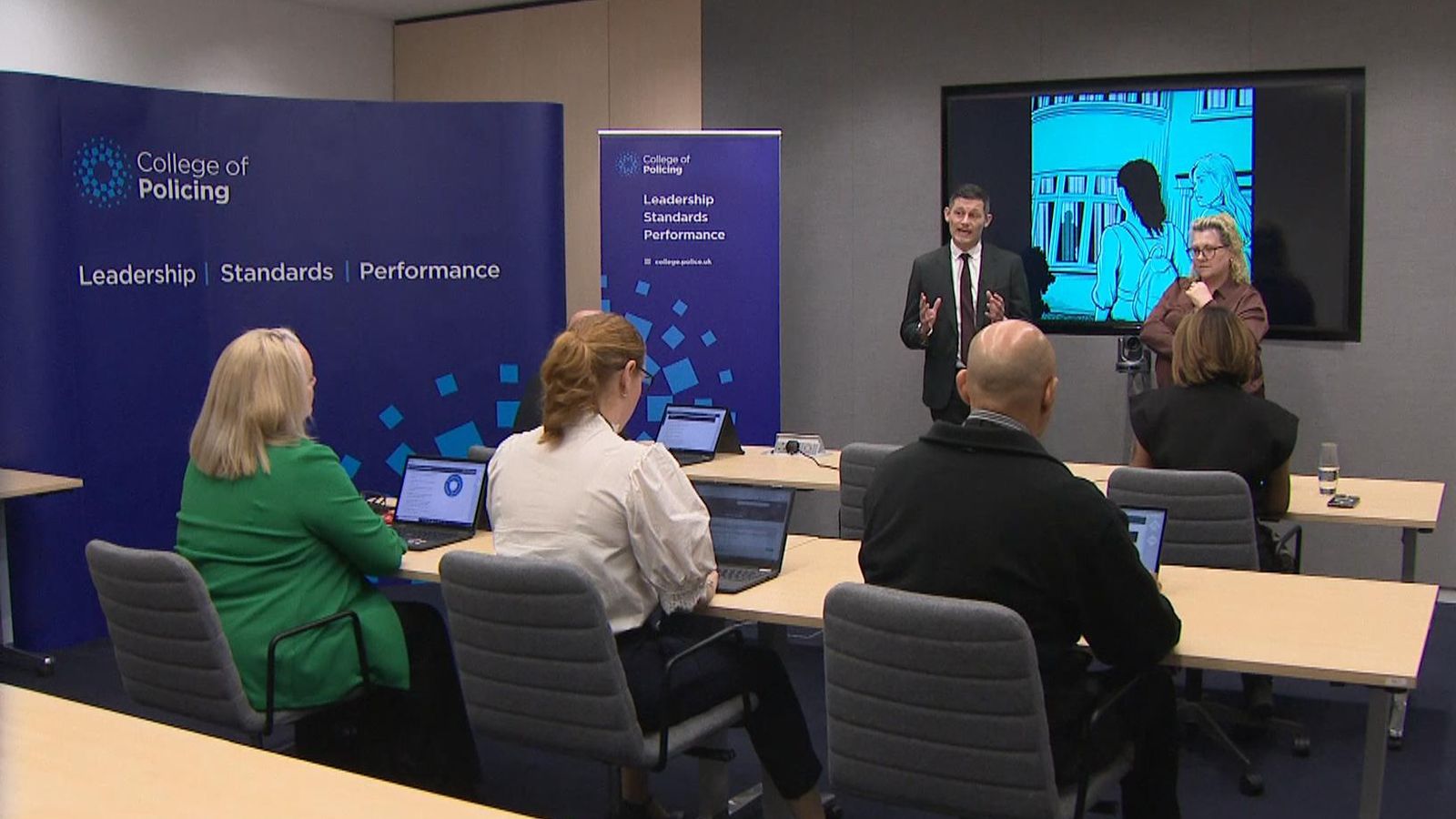U.K News
Police training in non-contact sexual offences welcomed by mother of murdered student Libby Squire

Enhanced Police Training on Non-Contact Sexual Offences: A Path to a Safer Future
Introduction
In a proactive move to address the serious issue of non-contact sexual offences, frontline police officers and staff in England and Wales are undergoing an improved training program. This initiative was developed with the invaluable input of Lisa Squire, the mother of Libby Squire, who tragically lost her life in 2019. The online module, already completed by over 2,000 officers, aims to equip the police with the necessary skills to respond effectively to such offences. This training is a direct response to recommendations from the Angiolini Inquiry, which highlighted lapses in police response that allowed Wayne Couzens, a serving officer, to commit the heinous crimes of kidnapping, rape, and murder of Sarah Everard in 2021.
Defining Non-Contact Sexual Offences
Non-contact sexual offences encompass a range of intrusive and distressing behaviors that, while not involving physical contact, profoundly impact victims. These include upskirting and voyeurism, where offenders derive gratification from secretly observing or recording individuals without their consent. Such offences, often trivialized, can escalate into more severe crimes. Data from 2022 indicates that most such incidents go unreported, and when they are, the police response has historically been inadequate. This underreporting and lenient handling can embolden offenders, potentially leading to more serious contact offences, as seen in the tragic cases of Libby Squire and Sarah Everard.
Lisa Squire’s Advocacy: A Mother’s Quest for Change
Lisa Squire’s advocacy stems from a deeply personal loss. Her daughter, Libby, was abducted, raped, and murdered by Pawel Relowicz, who had a history of non-contact offences, including public masturbation. Reflecting on her daughter’s case, Lisa emphasizes the pattern of escalation in such offences. Her involvement in the training module is driven by a desire to prevent similar tragedies, advocating for the police to take these offences seriously. Before Libby’s death, Lisa admits she viewed non-contact offences as isolated incidents, but now recognizes them as potential red flags for more violent crimes.
The Training Module: A Step Towards Change
The new online training module represents a significant shift in how police approach non-contact sexual offences. Developed in collaboration with experts and informed by cases like Sarah Everard’s, the module aims to change police attitudes and improve responses. By the end of 2023, all officers in England and Wales will have completed this training. The module’s success is evident, with over 2,000 officers already benefiting, fostering a more empathetic and informed police force better equipped to handle these complex cases.
The Need for a Cultural Shift
The Angiolini Inquiry exposed a critical flaw in police culture: the trivialization of non-contact offences. Dame Elish Angiolini’s report underscored the need for a "step change" in police responses, advocating for thorough investigations and victims’ support. Jamie Daniels of the College of Policing highlights the disproportionate impact on women and girls and the underreporting of these crimes. He emphasizes the importance of changing police responses to build trust with the public and achieve better outcomes for victims.
Conclusion: Building a Safer Future
The implementation of this training module is a crucial step towards a safer society. By addressing the root causes and taking non-contact offences seriously, the police can prevent escalation and protect potential victims. Lisa Squire and Jamie Daniels’ efforts symbolize a collective commitment to change. This enhanced training not only honors the memories of Libby and Sarah but also paves the way for a future where such tragedies are less likely. Together, we can strive for a society where every individual feels safe and respected.


















